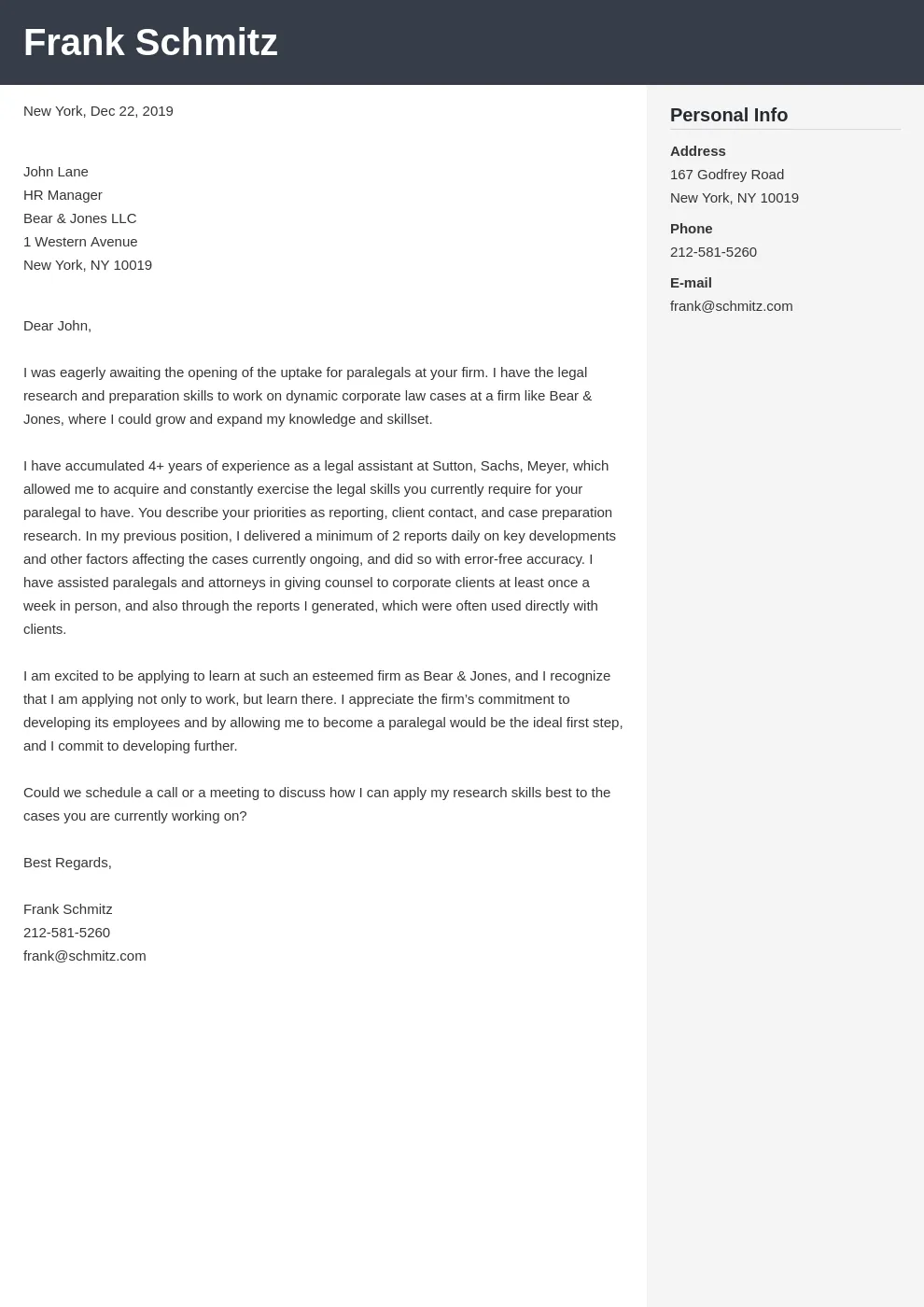Cover Letter: How to Stand Out
In the competitive world of law, a well-crafted cover letter can be your golden ticket to securing an interview. It’s your first chance to make a strong impression and demonstrate why you’re the ideal candidate for a position at a law firm. Unlike a resume, which simply lists your qualifications, a cover letter allows you to showcase your personality, passion, and how your skills align with the specific needs of the firm. This guide will provide you with essential tips and strategies to create a standout cover letter that grabs the attention of hiring managers and increases your chances of landing your dream job in the legal field.
Researching the Law Firm
Before you even begin writing, thorough research is crucial. A generic cover letter screams a lack of effort and a lack of genuine interest in the specific firm. Demonstrating that you’ve taken the time to learn about the firm’s values, culture, and recent achievements shows initiative and a genuine desire to be part of their team. This research will not only inform the content of your letter but also allow you to tailor it to the firm’s unique characteristics, making it far more impactful. Visit their website, read news articles, and even check their social media to gather important information.
Find out the law firm’s values
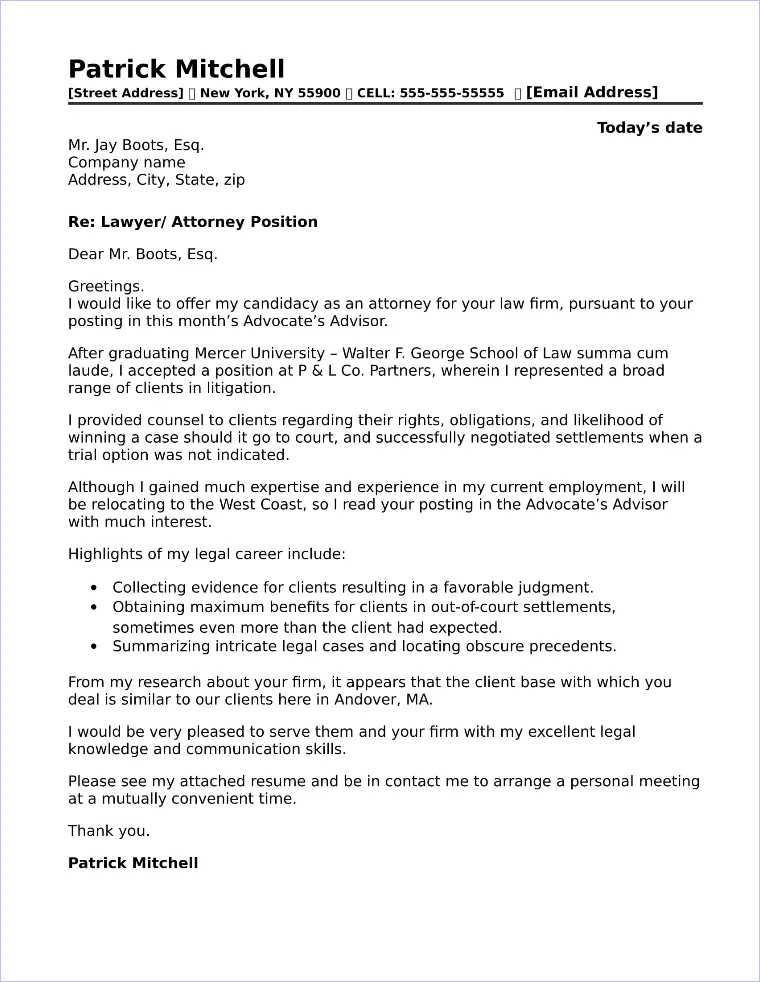
Understanding the firm’s core values is key. Does the firm prioritize pro bono work, innovation, or a specific area of law? Knowing this helps you align your cover letter to resonate with their priorities. If the firm values community involvement, highlight any volunteer experience you have. If they emphasize cutting-edge legal strategies, showcase your experience with new technologies or innovative approaches. Mentioning these core values will make your letter more relevant to the recipient. This is the perfect chance to mention your values too.
Find out the law firm’s culture
Each law firm has its own unique culture. Is it formal and traditional, or more relaxed and collaborative? Tailor your tone and writing style accordingly. If the firm emphasizes teamwork, emphasize your collaborative skills and experiences. If they value precision and attention to detail, ensure your cover letter is impeccable and free of errors. Understanding the culture will allow you to present yourself in a way that fits the firm’s environment. This will help you feel more at home during your interview, should you get one.
Tailoring Your Cover Letter
A generic cover letter is easily dismissed. Tailoring your letter to each specific law firm and position is essential. This shows that you’ve invested time and effort and that you’re genuinely interested in the opportunity. Use the research you’ve conducted to highlight the specific skills and experiences that align with the job requirements and the firm’s values. The more specific you are, the more effective your cover letter will be. Never send the same letter to multiple companies.
Highlighting Relevant Skills
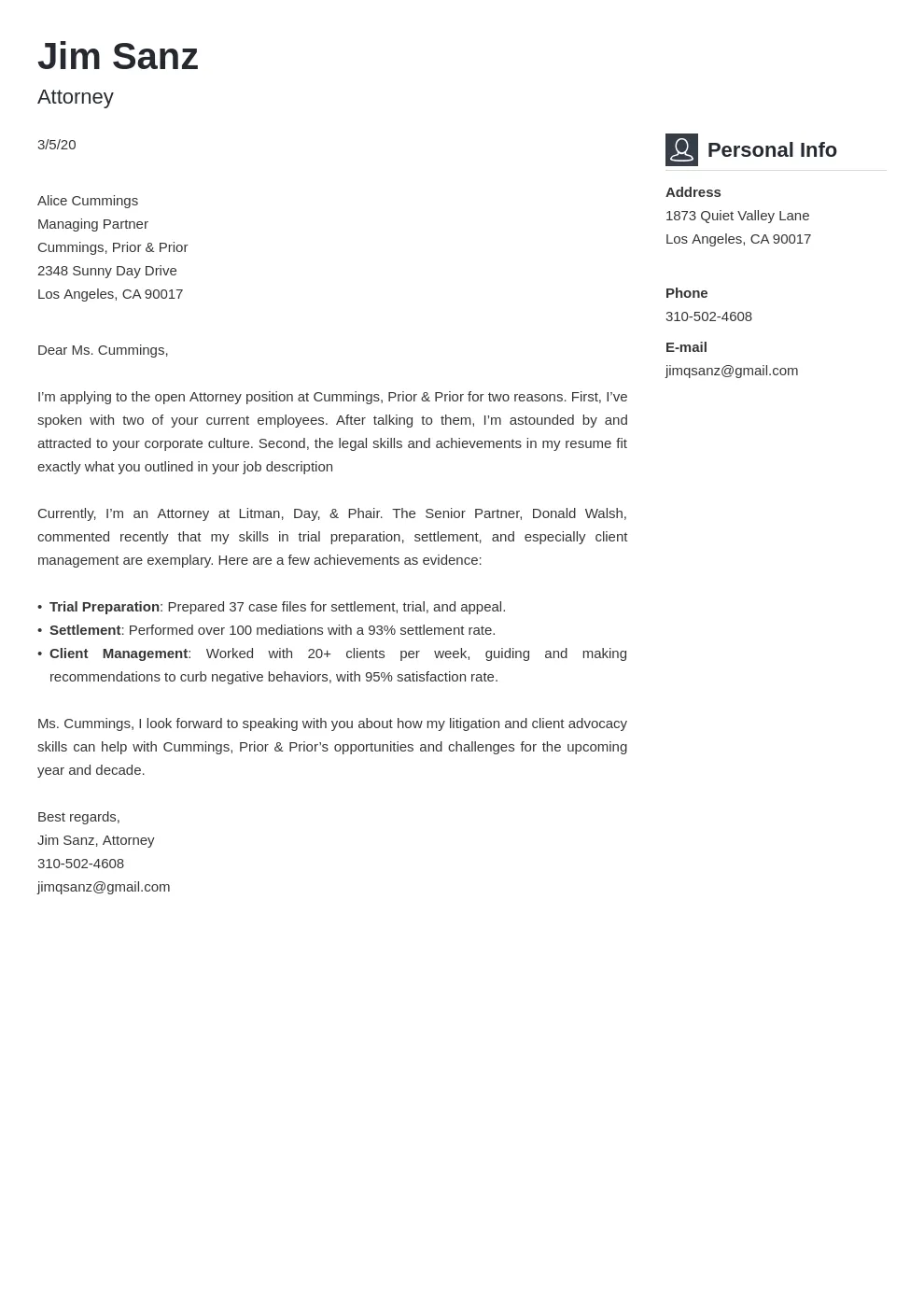
Carefully review the job description and identify the key skills and qualifications the firm is seeking. Then, in your cover letter, provide specific examples of how you’ve demonstrated those skills in your previous experiences. Use action verbs to describe your accomplishments, and quantify your achievements whenever possible. For example, instead of saying “Managed client files,” say “Managed a portfolio of 50 client files, ensuring 100% compliance with deadlines and regulations.” Show, don’t just tell, what you can do.
Showcasing Achievements
Don’t just list your responsibilities; highlight your achievements and the positive impact you’ve made in previous roles. Did you successfully argue a case, improve client satisfaction, or streamline a legal process? Quantify your achievements whenever possible. For instance, “Reduced case backlog by 20%” or “Increased client retention rates by 15%.” These concrete examples demonstrate your value and ability to contribute to the firm’s success. Always showcase those achievements you are most proud of.
Formatting and Structure
A well-formatted cover letter is easy to read and visually appealing. Use a professional font, such as Times New Roman or Arial, and maintain a consistent font size. Use clear headings and subheadings to break up the text and make it easier for the reader to scan. Keep the letter concise, aiming for one page in length. Ensure your margins are consistent and the spacing is appropriate to the law firm’s requirements. A messy and disorganized cover letter will quickly land you in the reject pile.
Creating a Strong Opening
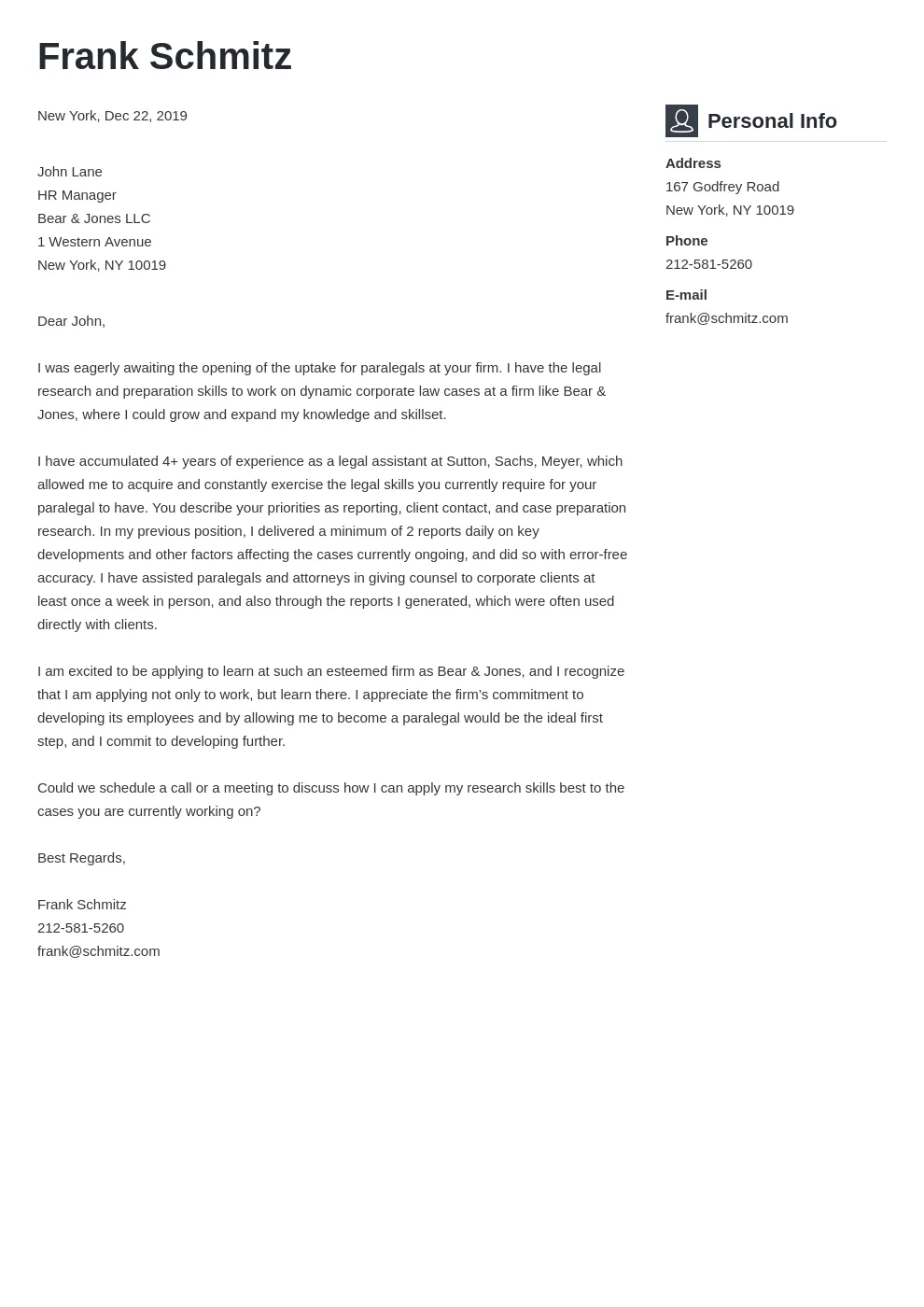
Your opening paragraph is your first chance to grab the reader’s attention. Start with a strong, concise statement that immediately conveys your interest in the position and the firm. Mention the specific position you are applying for and how you learned about it. If possible, personalize the letter by mentioning a specific person you are addressing it to, if you know the hiring manager’s name. Immediately state why you are excited by the opportunity. Show them you’re the right person for the job.
Writing a Compelling Body
The body of your cover letter should elaborate on your qualifications and experiences, highlighting how they align with the job requirements and the firm’s needs. Provide specific examples to support your claims. Instead of simply stating that you have strong research skills, describe a time when your research skills led to a successful outcome. Connect your skills and experiences to the firm’s values and goals, demonstrating how you can contribute to their success. Remember to show, don’t just tell them what you can do.
Crafting a Powerful Closing
Your closing paragraph should reiterate your interest in the position and the firm and express your enthusiasm for the opportunity. Reiterate your value and the benefits of hiring you. Thank the reader for their time and consideration, and clearly state how you can be reached for an interview. Make it easy for them to contact you, and leave a positive and lasting impression. Always offer the opportunity to follow up with them to let them know that you are very interested.
Proofreading and Editing
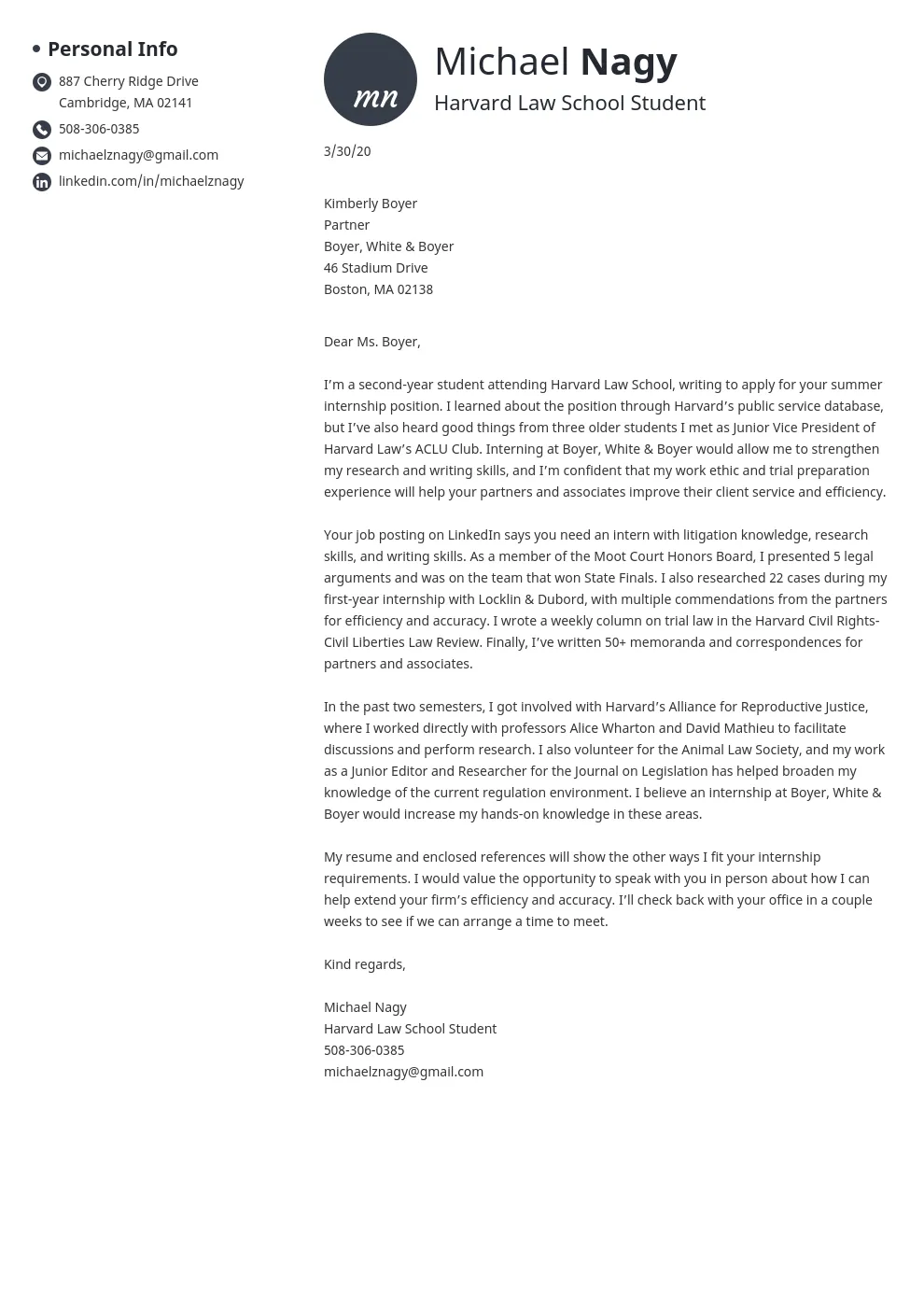
Before submitting your cover letter, meticulously proofread and edit it. Typos, grammatical errors, and awkward phrasing can undermine your credibility and suggest a lack of attention to detail. Read the letter aloud to catch any errors you might miss when reading silently. Have a friend or mentor review it as well, as a fresh pair of eyes can often spot mistakes that you might have overlooked. An error-free cover letter will demonstrate your professionalism and attention to detail. Many law firms will see a poor cover letter as a sign you would be poor for the job.
Ensuring Clarity
Ensure your cover letter is clear, concise, and easy to understand. Avoid using jargon or overly complex language. Use straightforward sentences and active voice to convey your message effectively. The goal is to make it easy for the reader to understand your qualifications and why you’re a good fit for the role. Keep it simple and to the point, and you’ll be able to grab the readers attention. Use simple language when possible.
Checking for Grammatical Errors
Grammatical errors can severely damage your credibility. Carefully check your cover letter for any errors in grammar, punctuation, and spelling. Use spell-check and grammar-check tools, but don’t rely on them entirely. Read through the letter multiple times, and if possible, have someone else review it for errors. Even small errors can reflect poorly on your attention to detail, an essential skill in the legal field. Do not let small mistakes stop you from being considered for the job.
The Importance of Follow-up
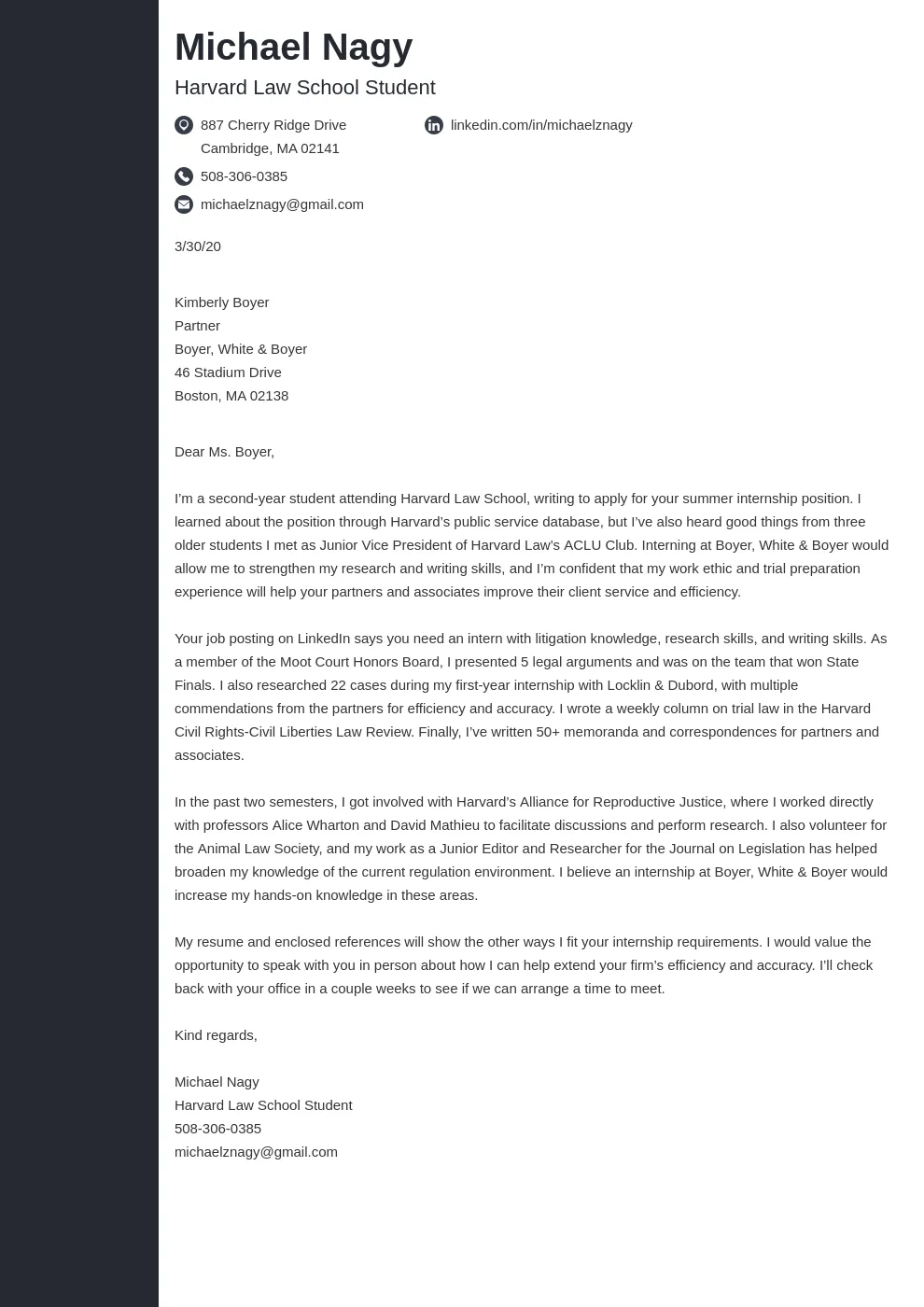
After submitting your cover letter and resume, following up can demonstrate your continued interest in the position. However, it’s important to strike the right balance – don’t be overly persistent. A polite and professional follow-up can help you stay top-of-mind with the hiring manager, but be respectful of their time. Use this opportunity to reiterate your interest and provide any additional information that might be helpful.
Following Up After Submission
Send a brief follow-up email a week or two after submitting your application. In your email, thank the hiring manager for their time and consideration, briefly reiterate your interest in the position, and mention anything new or relevant that might have come to your attention since you applied. This demonstrates your continued interest and allows you to reinforce your qualifications. Don’t be discouraged if you do not hear back, though you can always try to follow up one more time.
